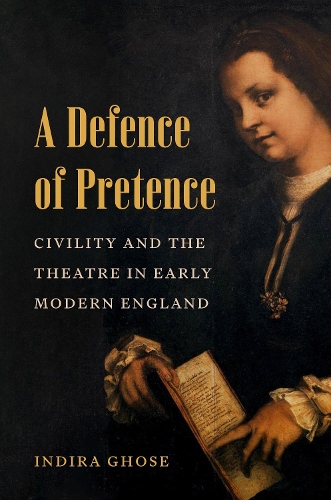
A Defence of Pretence: Civility and the Theatre in Early Modern England
(Paperback)
Available Formats
Publishing Details
A Defence of Pretence: Civility and the Theatre in Early Modern England
By (Author) Indira Ghose
Princeton University Press
Princeton University Press
11th March 2026
United States
Classifications
General
Non Fiction
Literary studies: plays and playwrights
European history: Renaissance
Social and cultural history
Physical Properties
Paperback
280
Width 156mm, Height 235mm
Description
How the drama of Shakespeare's time demonstrates the tensions within civility
Is civility merely a matter of reinforcing status and excluding others Or is it a lubricant in a polarised world, enabling us to overcome tribal loyalties and cooperate for the common good In ADefence of Pretence, Indira Ghose argues that it is both. Ghose turns to the drama of Shakespeare's time to explore the notion of civility. The theatre, she suggests, was a laboratory where many of the era's conflicts played out. The plays test the precepts found in treatises on civility and show that, in the complexity and confusion of human life, moral purity is an illusion. We are always playing roles. In these plays, as in social life, pretence is inescapable. Could it be a virtue
Civility, Ghose finds, is radically ambiguous. The plays of Shakespeare, Jonson and Middleton, grappling with dissimulation, lies and social performance, question the idea of a clear-cut boundary between sincerity and dissembling, between truth and lies. What is decisive is the use to which our play-acting is put. A pretence of mutual respect might serve an ethical end: to foster a sense of common purpose. In life, as in drama, the concept of the common good might be a fiction, but one that is crucial for human society.
Author Bio
Indira Ghose is emeritus professor of English at the University of Fribourg, Switzerland. She is the author of Women Travellers in Colonial India, Shakespeare and Laughter: A Cultural History, Much Ado About Nothing: Language and Writing and Shakespeare in Jest.
